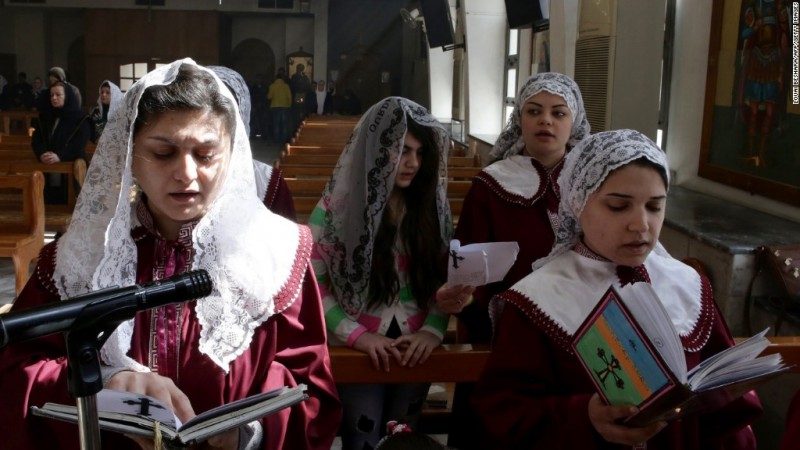ISIS militants in northern Syria released 19 Assyrian Christian hostages Sunday, an activist group said.
According to the London-based Syrian Observatory for Human Rights, all but one of the hostages were among the at least 220 Assyrians captured on February 23 during an attack on villages in the northern Syrian province of al-Hasakah.
The Syrian Observatory had said previously that a self-proclaimed ISIS court ordered the release of 29 Assyrian Christian hostages, citing an Assyrian commander.
The reasoning behind the release was not immediately clear. It was also not clear why only 19 people were let go Sunday.
The “court” told the commander that the fate of the other kidnapped Assyrians has yet to be decided by ISIS Sharia jurists.
When the decision was announced that at least some of the hostages would be released, Graeme Wood, with The Atlantic, said he was pleased to hear about it, but not entirely surprised.
“ISIS has claimed for a long time to follow rules, and it claims that these Sharia courts will impose limits,” he told CNN. “They can attempt to get credibility by showing that they follow rules and that they have some kind of transparent process that follows their particular implementation of Sharia law.”
Also this weekend, the Syrian Observatory reported that ISIS has killed 1,969 people, since the declaration of its “caliphate” last June. Nearly two-thirds of them — 1,238 people — were civilians.
Six were children and eight were women, the group said.
Of the rest, 95 were fighters from the al Qaeda-affiliated rebel group al-Nusra Front, the Syrian Observatory said, and 511 were officers and soldiers of regime forces.
ISIS also executed 125 of its own members for “exceeding the limits in religion,” the Syrian Observatory said.
“We in SOHR believe that the real number of people that had been killed by (ISIS) is higher than the number documented by SOHR because there are hundreds of missing and detainees inside the (ISIS) jails, loss of communication with about 1,000 men of al-Shaitaat tribe, (and) dozens of Kurds who have still been missing” since ISIS attacked the Syrian town of Kobani in September.
